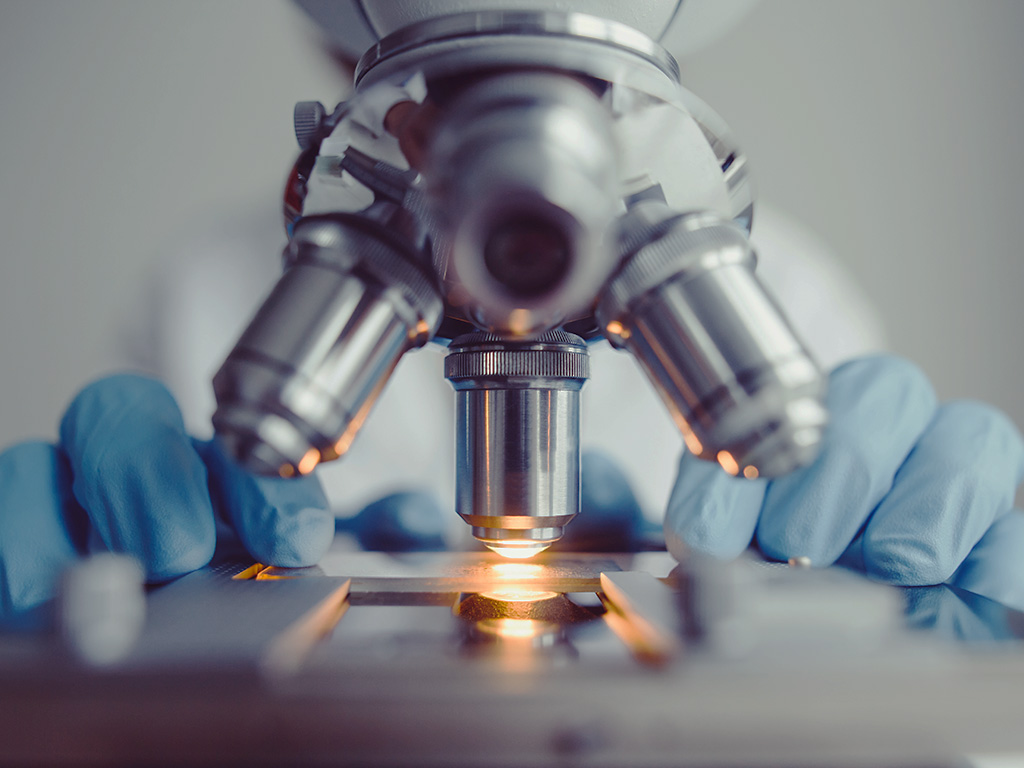New blood test can diagnose cancer without tumour sample

US scientists have developed the world’s first ‘tumour-uninformed’ test that can detect cancer DNA circulating in the blood of cancer patients following treatment. The liquid biopsy test enables clinicians to test for cancer without needing a sample of tumour tissue. It’s an exciting development and adds yet more evidence to the potential for liquid biopsies to be used in cancer diagnosis.
During liquid biopsy tests, researchers analyse a patients’ blood for traces of cancer, called circulating tumour DNA (ctDNA). Most current tests use a sample of a patient’s tumour for DNA sequencing, but in recent research published in Clinical Cancer Research, scientists describe how searching for known cancer-specific DNA alterations in a blood sample was as effective as using tissue samples.
During the trial, Lead author R. Parikh, MD, an investigator in the Division of Hematology and Oncology at MGH and an assistant professor of Medicine at Harvard Medical School, analysed ctDNA results from 84 patients that had undergone surgery for colorectal cancer.
They found that taking a ‘plasma only’ approach (where they analysed blood samples) was “similar in sensitivity and specificity to tumor-informed approaches.”. They conclude that the findings “support the potential clinical utility of plasma-only ctDNA MRD detection.” Simply put, searching for DNA alterations in a blood sample was as effective at detecting cancer as using DNA samples from a patient.
The research provides a valuable contribution to the growing literature and evidence supporting non-invasive, liquid-biopsy approaches to diagnosing cancer, says Parikh. “The use of ctDNA, which is a type of ‘liquid biopsy, is a powerful prognostic tool to detect residual disease, and many prospective trials are underway in the United States, Europe, Asia and Australia to use ctDNA to guide treatment decision-making.”
The study is the first of its type to use a plasma-only approach, Parikh says. “Most studies have used a tumor-informed ctDNA approach that requires testing of the tumor and knowledge of tumor-specific alterations, which can’t be used when a patient has insufficient tumor tissue for analysis.” The results demonstrate the exciting potential for ctDNA testing when a tumour sample isn’t available. The assay created is already being used as the basis for prospective studies and could pave its way for its clinical use in the future.
Despite liquid biopsy tests providing high levels of accuracy at diagnosing cancer, they’re not routinely available through healthcare providers.
At RGCC, we’re at the forefront of liquid biopsy testing and offer a range of personalised cancer tests that can assess your risk of developing cancer. Our Oncotrail RGCC test provides information about the presence of circulating tumour cells, their concentration, and immunophenotype for specific types of cancer, including breast cancer and prostate cancer.
Our Oncotrace RGCC test can identify the presence of circulating tumour cells (CTCs), their concentration and type providing helpful guidance on tumour location and prognosis.
You can read the full paper, Minimal Residual Disease Detection using a Plasma-Only Circulating Tumor DNA Assay in Colorectal Cancer Patients, here.

